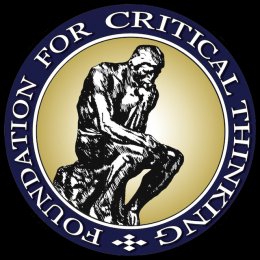Additional Information About:
Webinar: Why Intellectual Character is Essential to Strong-Sense Critical Thinking and to Reasoning Within All Fields of Study
Thursday August 18th, 2020
1:00 p.m. Eastern Daylight Time (10:00 a.m. Pacific)
Duration: 50 Minutes
What is strong-sense critical thinking? What is weak-sense critical thinking? Where do you see either being played out in human life today? What is intellectual character and how do we develop it in ourselves and in our students? How do intellectual virtues interrelate with intellectual skills and abilities? Why is the development of intellectual character essential to teaching and learning, and to high-level functioning in personal and professional life? Can people develop intellectual traits partially? If so, how might this be manifest? In this webinar discussion, Dr. Elder will address these questions, as well as your questions about how to cultivate intellectual character in students and in yourself.
Prior to the webinar, please complete the numbered items listed below, which are found in the Center for Critical Thinking Community Online. In this discussion, Dr. Elder will presuppose that attendees have studied the Intellectual Virtues through these activities, or previously through attending our conferences, academies, or courses. Therefore, the webinar will be based on the questions you bring to the discussion.
1) Study Intellectual Virtues by reading pages 14 & 15 in The Miniature Guide to Critical Thinking Concepts and Tools.
2) Read pages 37 & 38 in The Thinker's Guide on How to Study and Learn a Discipline.
2) Study Intellectual Virtues by watching this video.
3) Read the definitions of weak-sense critical thinking and strong-sense critical thinking in the Glossary of Critical Thinking Concepts and Terms.
4) Complete the four activities on this page.
Remember that you need a Center for Critical Thinking Community Online account to participate in this discussion. If you are brand new, a 30-day free trial is available.
Note: All webinar registrants will be emailed within 48 hours of the start of the webinar with a link to where it can be accessed. In some cases, your email server may incorrectly filter the email as spam, so please check your spam folder as well.
